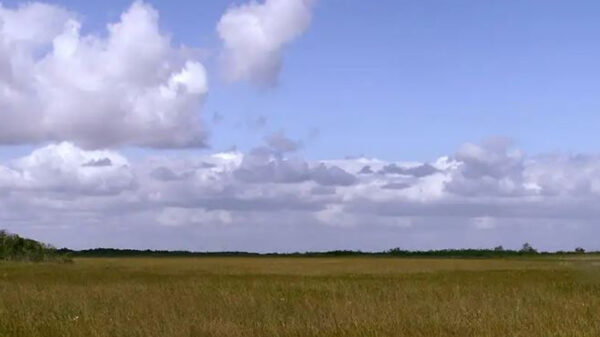Last week, Florida Agriculture Commissioner Nikki Fried wrote to U.S. Secretary of the Interior Deb Haaland and National Park Service Director Charles F. Sams III regarding oil drilling and wetlands restoration in the Big Cypress National Preserve.
Fried asked the National Park Service to reject Texas-based Burnett Oil Company’s efforts to modify their wetlands damage mitigation requirements and to perform additional oil drilling in the Florida Everglades region.
Bipartisan members of Congress, Indigenous communities including the Seminole and Miccosukee Tribes, and environmental advocates have expressed intense opposition to the Texas company’s plans for new oil drilling pads and access roads through federally-protected wetlands. Due to sparse details on environmental and endangered species impacts, last week the Florida Department of Environmental Protection “strongly recommended” that Burnett Oil Company withdraw their oil drilling application or face potential denial. The National Park Service is also currently considering a proposal to modify Burnett Oil Company’s requirements to mitigate wetlands damage from seismic oil exploration in the Big Cypress National Preserve. Commissioner Fried’s request to reject this modification echoes strong opposition from the Natural Resources Defense Council, the Center for Biological Diversity, the Conservancy of Southwest Florida, and the National Parks Conservation Association.
The letter reads as follows:
Secretary Haaland and Director Sams,
I write today in strong opposition to Texas-based Burnett Oil Company’s proposed oil drilling in the Big Cypress National Preserve area of the Florida Everglades, and to express concern regarding the company’s inadequate mitigation of prior wetlands damage in the region. I am joined in this opposition and concern by bipartisan members of Florida’s Congressional delegation, Indigenous communities including the Seminole Tribe of Florida and the Miccosukee Tribe of Indians of Florida, environmental and conservation advocates, and local communities.
The National Park Service (NPS) has proposed to modify Burnett Oil Company’s requirements to mitigate environmental damage under its 9B permit (Existing Plan of Operations). The company conducted seismic oil exploration in 2017 and 2018, in which heavy industrial vehicles traversed through more than 100 square miles of pristine wilderness, destroying native cypress trees and impacting endangered species. According to monitoring reports, Big Cypress has not yet recovered from this damage, with seismic lines impairing water flow across the Everglades, among other impacts. Burnett Oil Company has not yet properly remediated this wetlands damage, yet the NPS is currently considering allowing the company to instead perform restoration on alternative lands.
Meanwhile, Burnett Oil Company is seeking to drill at two sites in Big Cypress, constructing new drilling pads and access roads through ecologically sensitive wetlands. As noted in the Miami Herald, “the Burnett plan would represent a major expansion and has generated intense opposition.” The Burnett proposal – which requires NPS approval – is so incomplete that last week, the Florida Department of Environmental Protection strongly recommended that Burnett withdraw its application or risk denial. The Florida Fish and Wildlife Conservation Commission also raised serious concerns about missing information on potential impacts to endangered species, should this drilling proceed.
Under Chapter 62-345, Florida Administrative Code, mitigation must fully compensate for the wetlands loss using the best available scientific judgment. Should NPS allow modification of Burnett’s 9B permit, their mitigation requirements may no longer meet that legal standard of wetlands remediation. Further, in the words of the Orlando Sentinel, Burnett’s proposal for additional oil drilling is “an unnecessary risk — one that guarantees some destruction simply for construction of the roads and drilling pads — in one of the most environmentally fragile places in America.”
I join the Natural Resources Defense Council, the Center for Biological Diversity, and other environmental stakeholders in encouraging the NPS to use its broad legal authority to protect the Big Cypress National Preserve from the adverse effects of oil and gas development. I also join Florida Indigenous leaders regarding their concern for this drilling’s impacts on tribal communities and irreplaceable cultural sites.
I ask that the National Park Service reject Burnett Oil Company’s request to modify its existing wetlands damage mitigation requirements, and reject their request for additional drilling in Big Cypress, should their application not be withdrawn. As one of Florida’s lead state agencies for the management of conservation lands, please consider this letter the formal comments of the Florida Department of Agriculture and Consumer Services.
The fate of this vast wilderness, part of the most unique and delicate ecosystem on Earth, hangs in the balance with these decisions before you. Thank you for your consideration and your efforts to protect America’s natural treasures.

















